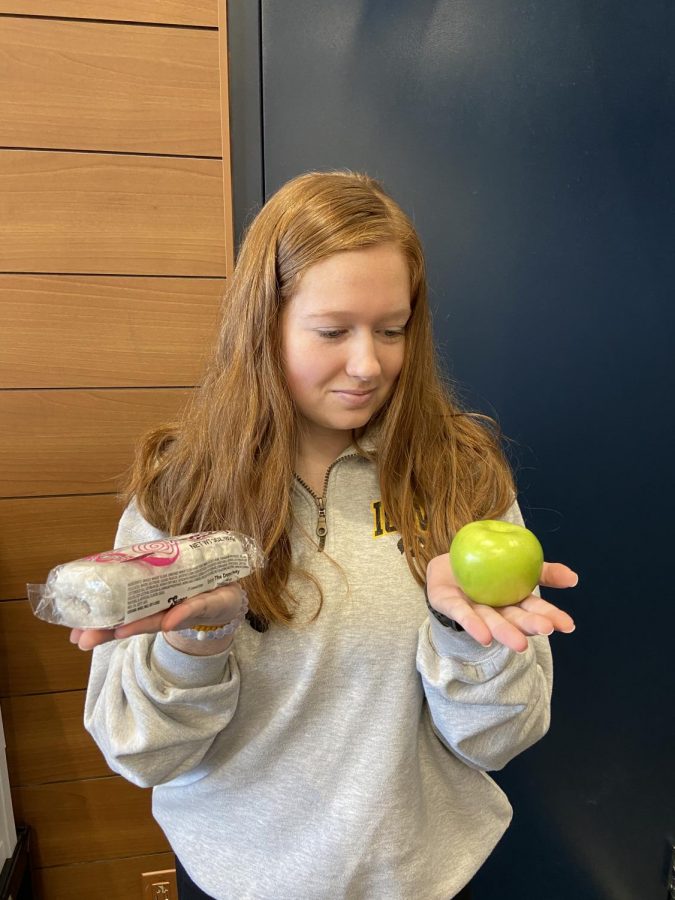As Spring is getting closer day by day, so are Spring sports. Many students are involved in one or more of the various Spring sports PV has to offer. These sports include: soccer, track and field, golf, tennis and the trap shooting. Most sports assist in keeping a person in shape, but sometimes it is what a person might do outside training, practices and competitions in order to stay healthy. Here are five of the best ways to stay healthy outside of athletics.
1. Eat nutritious and energizing foods
Athletes need to consume foods that will benefit their health and performance. These foods include: fruits, vegetables, carbohydrates and proteins. Fruits and vegetables can provide energy and nutrients necessary for training and recovery; select (whole-grain) carbohydrates serve as a good energy source; protein plays an important role in an athlete’s diet as it helps repair and strengthen muscle tissue. However, protein should be consumed in a way specific to the athlete’s body and diet because in protein’s case, more is not always better.
2. Drink Water
Staying hydrated is very important for everyone, but especially for athletes. Water regulates body temperature and lubricates a person’s joints. It helps transport nutrients that provide energy and help maintain good health. If a person isn’t hydrated, their body can’t perform at its highest level. People who aren’t hydrated may also feel tired, have muscle cramps, dizziness, or other serious symptoms. To be on the safer side, drink water before, during and after working out. The more water, the better the body will feel.
3. Stretch
More athletes should participate in dynamic stretching. Dynamic stretching is movement-based stretching. It targets necessary muscle groups to increase the power, flexibility and range of motion needed for enhanced performance. Participating in this type of stretching prepares an athlete’s body physically and mentally for the work ahead, in return being better for the body. An athlete should do dynamic stretches in and outside of practices and competitions because it will not only prove to be beneficial for their performance, but also for how their body feels.
4. Sleep
The body needs to sleep in order to re-energize and have enough power to get through the next day. Let’s be real, being an athlete can be stressful! Sleep can help this release stress and tension an athlete might have throughout the day. Also, studies have shown that when people sleep, a growth hormone is released. This growth hormone stimulates muscle growth, repair and helps bone building, fat burning and an athlete’s recovery. When athletes don’t get enough sleep, it can slow this growth hormone, which can negatively impact the body.
5. Listen to your body
As an athlete, the body may ache, or sometimes that aching can lead to or be a sign of injury. When athletes feel pain or discomfort, they need to get checked up as soon as possible in order to take care of the current pain and prevent any further injury. Some acute injuries may include: sprained ankles, strained backs and broken bones. However, after playing for a long time, some chronic injuries can occur. The more athletes listen to their bodies, the more they will be able to prevent injury and the better their bodies will feel.








